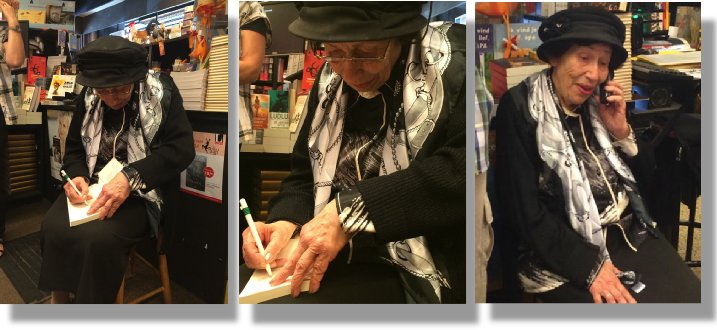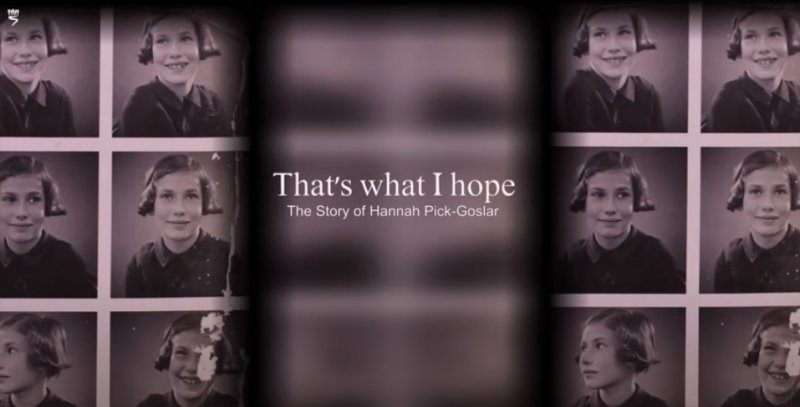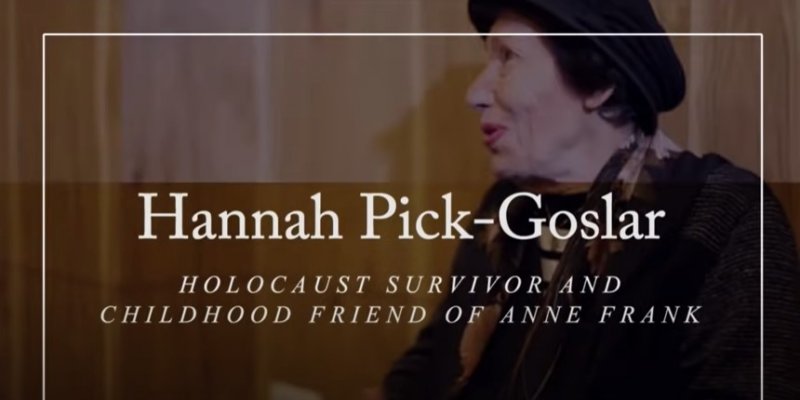Hannah 'Hanneli' Elizabeth Goslar
Hannah 'Hanneli' Elizabeth Goslar, vriendin van Anne FrankHannah 'Hanneli' Elizabeth Goslar (born November 12, 1928) is a former nurse who is best known for her strong and close friendship with diarist Anne Frank. Both Hannah and Anne had attended the Sixth Public Montessori School (now the Anne Frank School) in Amsterdam and then the Jewish Lyceum.
The family lived Zuider Amstellaan (now Rooseveltlaan) 16 II, Amsterdam hier woonde de familie Goslar
Early life
Hanneli Elizabeth Pick-Goslar was born in Berlin, Germany on 12 November, 1928, the eldest child of Hans Goslar and Ruth Judith Klee. Her father was deputy minister for domestic affairs in Germany until 1933 and her mother was a teacher. Both of her parents were observant Jews. Her mother died giving birth to her third child; the baby was stillborn. In 1933, after the election of Adolf Hitler and the Nazi party to the Reichstag and Hitler's appointment as Chancellor, Hans Goslar was forced to resign his governmental job. After an abortive attempt to move to England, where Hans Goslar could not find work that would allow him to stay home on the Sabbath, the Goslars moved to Amsterdam, the Netherlands. Hannah attended the Sixth Public Montessori school in Amsterdam, where she became best friends with Anne Frank. Anne and Hannah were also best and close friends with Susanne ''Sanne'' Ledermann, who lived in the same area but attended a different school, and later with Ilse Wagner and Jacqueline van Maarsen.
Arrest and concentration camp life
In 1943 on the 20th of June, Hannah, her father, her maternal grandparents, along with Hannah's younger sister Gabriela ("Gabi"), were arrested and sent to Westerbork, a transit camp, and then eventually to the exchange camp of Bergen-Belsen. Hannah was in a privileged section of the camp because her family had Palestine passports with them. Sometime between January-February 1945, Hannah was briefly reunited with Anne Frank, who was a less privileged prisoner imprisoned at the other side of the camp. Hannah passed Anne a package with some bread and socks in it. Hannah and Gabi survived 14 months at Bergen-Belsen. Her father and maternal grandparents all died of a sickness before the liberation. Hannah and Gabi were the only members of their family to survive the war, and in 1947, they immigrated to Jerusalem, Palestine.
Frau Hannah Pick, Jerusalem/Israel, 2010
Am 25. Oktober 1940 kam in Amsterdam meine Schwester Rachel (Gabriele) zur Welt. Am 27. Oktober 1942 starb meine Mutter Ruth während der Geburt des dritten Kindes. Es war tot geboren.
Die Großeltern, mein Vater, Rachel und ich erlagen in Amsterdam am 20. Juni 1943 einer Großrazzia der Deutschen. Sie deportierten uns zunächst in das Durchgangslager Westerbork, wo mein Großvater Alfred Klee im November 1943 an einem Herzanfall starb. Danach sind Großmutter Therese Klee-Stargardt, mein Vater und wir Kinder in das deutsche Konzentrationslager Bergen-Belsen (Austauschlager) gekommen. Mein Vater Hans Goslar ist dort am 25. Februar 1945 an den Folgen der KZ-Haft gestorben.
Meine Großmutter Therese Klee-Stargardt hätte uns wahrscheinlich durch einen Austausch viel mehr helfen können, denn Jüngere, wie z. B. mein Vater, meine Schwester und ich, standen nicht auf der Liste. Als es für Therese Klee wirklich einmal eine Gelegenheit zum Austausch gab, suchte sie einen SS-Mann auf und sagte zu ihm: Ich kann nicht von hier weggehen, mein Schwiegersohn ist sehr krank. —- So blieb meine Großmutter Therese in Bergen-Belsen und starb am 25. März 1945.
Anfang April 1945 schickten die Nazis von Bergen-Belsen drei Deportationszüge mit jeweils 2500 Häftlingen zur Vernichtung nach Theresienstadt. Der letzte dieser drei Züge verließ Bergen-Belsen am 10. April 1945, darunter meine vierjährige Schwester und ich Fünfzehnjährige. Wegen der vorrückenden Front irrte der Todeszug mit uns dreizehn Tage ziellos durch Deutschland. Am 23. April 1945 befreite uns die Rote Armee bei Tröbitz, einem Dorf in der Niederlausitz. Eine Vielzahl von Häftlingen erlebte diesen Augenblick nicht mehr.
Meine Schwester Rachel und ich haben als einzige aus unserer Familie überlebt. FAMILIE GOSLAR

Hannah 'Hanneli' Elizabeth Goslar met Gert-Jan Jimmink aan de telefoon voor de toonbank in Boekhandel Jimmink.
Ik neem nu afscheid want ik ben te oud om zulke lange reizen van Israël naar Nederland te maken.
Hanneli Goslar speaks of her friendship with Anne Frank
Hannah-Elizabeth (Elisheva) Gosler Pick was born in 1928 in Berlin to Hans Gosler and Ruth-Judith née Klay. Hannah's father was Head of the Prussian Press Bureau and adviser to the Minister of Interior of Brandenburg, Germany, her mother was a teacher. In 1933, with the rise of the Nazis to power, Hannah's family moved to England and a year afterwards to Amsterdam. There, at school, Hannah met Anna Frank, also a refugee from Germany. With the German occupation in May 1940, Hannah experienced the discrimination of Jews and the prohibitions imposed on them. In October 1942, while giving birth both the baby and Hannah's mother died. On June 20, 1943, Hannah, her younger sister Gabriella (Gabi), her father and her grandfather were arrested and sent to the Westerbork transit camp. Hannah and Gabi were separated from their father and sent to the orphanage in the camp. In addition to her work cleaning the toilets, Hannah helped care for toddlers in the orphanage. On February 15, 1944, Hannah, her father and her sister were transferred to the Bergen-Belsen concentration camp. In Bergen-Belsen, Hannah had to do forced labor and she took care of her three-year-old sister Gabi. When she was told that Anna Frank was also imprisoned there she managed to establish contact with her and even tried to give her a package of food and clothing. Hanna's father, grandfather and grandmother were murdered in Bergen-Belsen. On April 11, 1945, the camp inmates were evacuated. Hannah had contracted typhus, but was nevertheless taken, together with her sister, in the "lost train" which traveled aimlessly for about two weeks. In June, the Soviets handed them to the Americans and in July, Hannah and her sister returned to Amsterdam. Hannah made Aliah to the Land of Israel in 1947 and lived in Kfar Hasidim. She worked as a nurse in a pediatric ward at the 'Bikkur Holim' Hospital in Jerusalem. Hannah and Walter-Pinchas had three children.
klik hier voor het levensverhaal van Hanneli.



